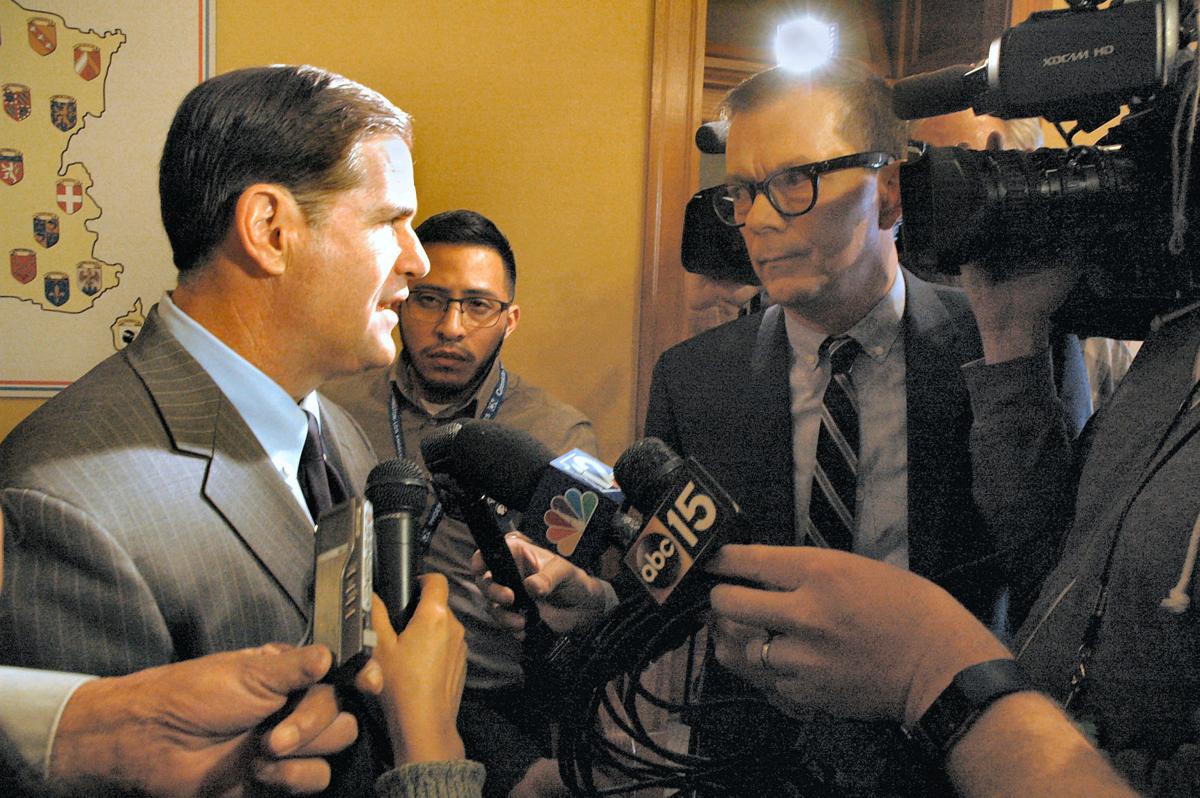Gov. Doug Ducey has released a plan he says will help stop mass shootings by placing more police and counselors in schools and allowing law enforcement officers and select others to ask a court for a special restraining order to keep firearms away from a person threatening harm to themselves or others.
It’s a start, and depending on the details of the proposals, it could be a good start.
But the plan leaves a gaping hole that must be closed: Every purchase of a weapon, whether at a gun shop, gun show, online or out of the trunk of a car, must require a federal background check.
Ducey’s proposal follows some of what several other states, including Florida, are doing or have done. Unlike Florida, he does not support raising the legal purchasing age for rifles, including the AR-15 that has been used in multiple mass shootings, from 18 to 21.
Ducey’s plan calls for a category of restraining order called the Severe Threat Order of Protection (STOP), that would allow a judge to determine if a person is a danger to themselves or others. If a judge determines the person is dangerous, the individual would temporarily be barred from possessing or purchasing firearms and would have to undergo a mental-health evaluation.
The circle of who could petition a judge for a STOP order is limited: law enforcement, immediate family members, school administrators, teachers, social workers, counselors and resident advisers. Making a false sworn statement to seek a STOP order would be punishable with jail time.
Arizona law already allows for third parties, including law enforcement, to ask a judge to commit a person for an involuntary psychiatric evaluation for up to 72 hours.
Ducey’s plan would permit police to take a firearm from someone they have “probable cause” to think is a danger. A judge would have to hold a hearing within 24 hours to decide if the person needs mental-health care.
Depending on how the STOP system is used, it could be beneficial. Judges would use an evidentiary standard of “Clear and Convincing Evidence: Proof that exhibits substantially more than a 50 percent likelihood of a severe threat,” and it can be renewed, according to the plan outline.
The key will be how the STOP criteria are outlined and interpreted. It is entirely possible to have a plan that sounds good on paper, but is so limited in scope as to be useless in practice.
Ducey also calls for bringing Arizona’s contribution to improve the criminal background-check database. As it stands, Arizona’s input is only 64 percent up to date. In and of itself, this is a worthy goal. But, we must also place it in context.
These changes only affect gun purchases from federally licensed sellers.
Even if approved, Ducey’s plan does nothing to require background checks for every firearm purchase. A person could be deemed dangerous by a judge, have to surrender his guns under court order — and still purchase a new weapon from a private seller at a gun show with no background check.
Changes around the edges are encouraging, especially from a Republican governor, but they are a far cry from universal background checks. Democrats and youth activists are also criticizing the plan because it does not ban bump stocks, an accessory that allows a semiautomatic weapon to fire much more rapidly.
We continue to push for universal background checks for all firearm purchases. But, we cannot dismiss out of hand the changes Ducey proposes, because they are a beginning. The key is to make sure that this plan isn’t the end.





